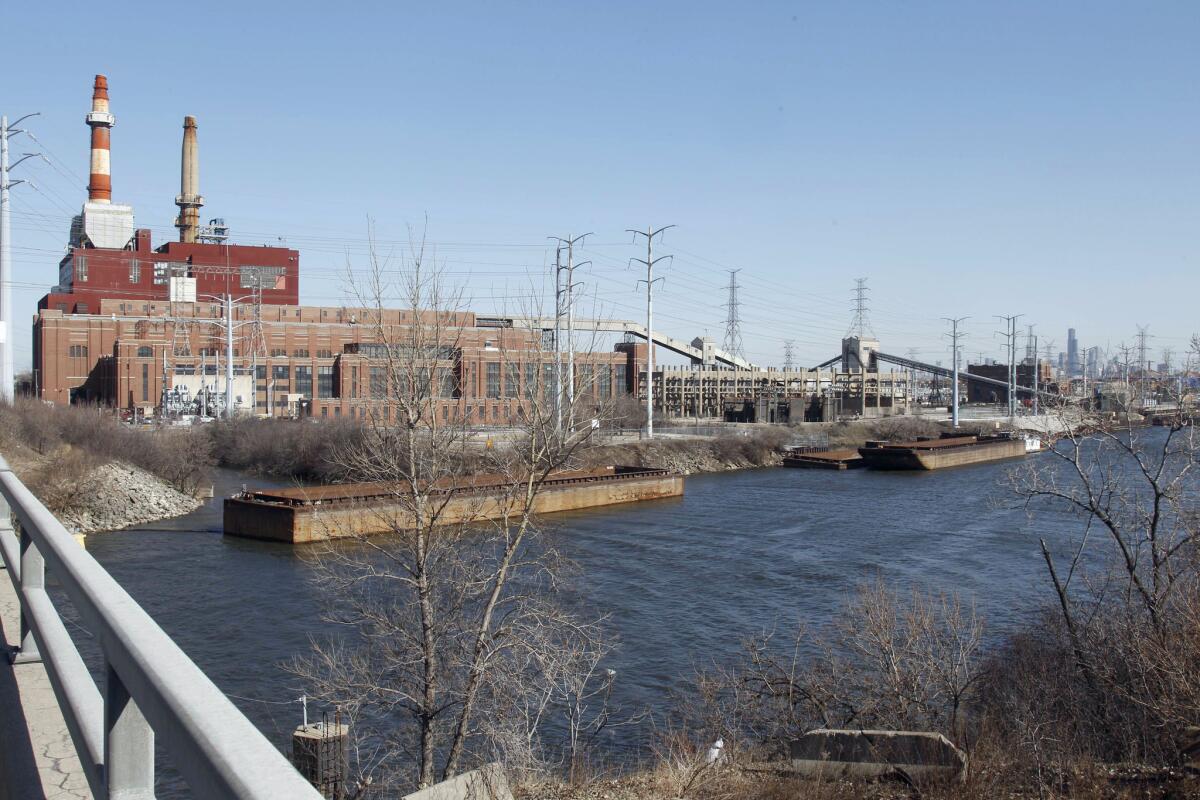Senate rejects GOP bid to lift EPA coal plant regulations

- Share via
WASHINGTON — Senate Democrats blocked a Republican-backed move Wednesday to scrap EPA regulations on mercury and toxic chemical emissions from coal power plants, not swayed by the contention that the rules are killing jobs, not saving lives.
The measure, sponsored by Sen.James M. Inhofe(R-Okla.), failed, 53 to 46.
Picking an election-year fight over the wisdom of instituting new environmental regulations in a weak economy, Republicans argued that the rules would force older power plants to close, putting people out of work, and would drive up the cost of electricity.
Inhofe warned senators that by voting against his measure “you are effectively killing coal in America.”
Opponents of the measure said the regulations were needed because of the hundreds of thousands of Americans made ill by toxic chemicals spewed by coal-fired plants.
The Environmental Protection Agency estimates that the rules will prevent 11,000 premature deaths a year.
Environmental groups praised the regulations when they were announced in December as a historic step that was more than two decades in the making.
Congress ordered the EPA to regulate the chemicals as part of the 1990 Clean Air Act, but delays and aGeorge W. Bushadministration U-turn meant mercury and other toxic chemicals from coal plants were not controlled until the rules were announced last year.
There was little chance that the Mercury and Air Toxics Standards would be repealed. Even if Congress had passed Inhofe’s measure, the White House had threatened to veto it. But the vote allowed senators to attempt to capitalize on the issue ahead of this fall’s election.
Some Democrats from energy-producing states voted for the measure. But New England Republicans, whose states do not use much coal and are in the path of airborne chemicals from Midwestern plants, voted against it.
Sen. Joe Manchin III (D-W.Va.) said the regulations would harm miners in his state, which is a major coal producer. “These people are scared to death because all they hear every day is they’re going to lose their jobs,” he said.
But West Virginia’s other Democratic senator,John D. Rockefeller IV, argued that the rules would help clean up the coal industry, giving it a viable future.
Manchin is up for reelection in November; Rockefeller is not.
Power companies have four years to meet the rules, which the EPA estimates will cost the industry almost $10 billion a year. But the agency also estimates that the regulations will save between three and nine times that amount as a result of better health. The EPA also estimates that although some jobs could be lost as plants closed, others will be created to install the required equipment.
The rules require all coal plants to meet the same standards as the cleanest coal plants now operating. The EPA estimates the regulations will cut mercury emissions by 90% and acid gases by 88%.
Power plants are responsible for 50% of mercury emissions in the United States. Mercury gets into water, where it is turned into a highly toxic chemical by microorganisms and accumulates in fish.
Mercury can cause developmental problems in children who eat contaminated fish. Other chemicals emitted by coal plants are linked to cancer and respiratory illnesses.
Inhofe brought the move to strike down the EPA rules under the Congressional Review Act, which gives lawmakers the power to block major regulations. Senate Democrats invoked the same act to try to stop President Bush’s EPA from yanking coal power off its list of regulated industries in 2005.
That bid failed, and the EPA was sued by a group of states and environmental organizations. In 2008, the U.S. Court of Appeals for the District of Columbia Circuit ordered the EPA to restore coal plants to the list.
More to Read
Sign up for Essential California
The most important California stories and recommendations in your inbox every morning.
You may occasionally receive promotional content from the Los Angeles Times.













